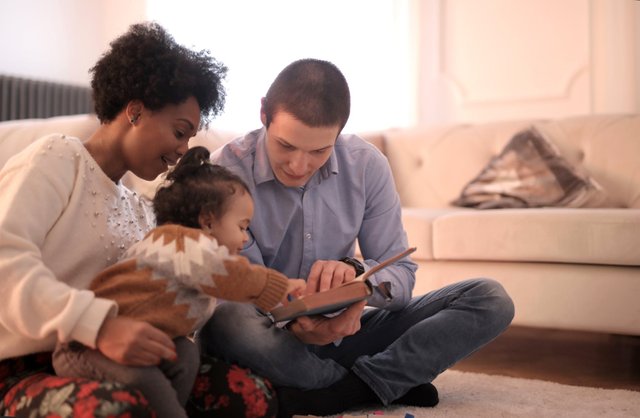Happy Children Are Those Raised By Parents Who Get Involved

Although there are many things to know about raising children, some of which are strictly specialized, there are also some very simple and easy to apply. These are primarily about intuition, practice and the common sense of a loving parent. When we love a child, some notions come naturally, from the heart.
First of all, it is good to spend as much time as possible with your child. Of course, in everyday life there are also jobs and other obligations, but a parent must find time, at least in the evening, to stay with children, read them and play together. This time spent together is very precious, as it helps establish a normal and warm emotional bond between parents and children, and helps the child feel safe. The ritual of playing in the evening with the parents takes on a role in the normal development of the child, strengthening his feeling of safety and of being loved. Of course, the other rituals also have their role: the meal, the bath, playtime with other children, etc. Even if the child spends the rest of the day with the nanny or with the grandparents, the parents' time is a special one.
And of course, on days off, weekends or holidays, this time spent together increases, and so does the child's sense of happiness and stability.
Even when the child is older - preschool, school, or even a teenager - there must be time spent together with the parents, where the adults can actually communicate with the child, find out his feelings, preferences, opinions about things, or simply , how he spent his day at school, and details about his friends. Of course, when needed, the child must also be helped with his/her homework.
During this communication, the opportunity must be found to tell the child that you love him. Even if he feels it, it is good for him to also find it out directly - that strengthening his sense of safety and protection. And he, in turn, will learn to tell his parents that he loves them.
Related to this, the child needs to feel the warmth when he/she has a success. He needs to be embraced, sometimes even for no reason.
Communication with the child must be done as calmly and balanced as possible. Even if some children are more naughty, and sometimes you feel the need to yell at them, it is not good to do it, because the child will take this bad habit as a ritual. He may learn to listen only to cries, or he may begin to cry himself in similar situations. Of course, sometimes admonitions in a higher tone are needed, and the child must learn to feel by the tone that something has not been done well. In the case of disobedience, instead of yelling and corporal punishment, other punishments can be used - for example, deprivation of certain TV programs, computer for a short period, or to perform a favorite activity.
Another way to contribute to children wellfare is to carry out certain activities together - domestic or recreational. When the child is involved in cleaning - starting by putting in order his own room, or in shopping, he will be very happy to learn the adult issues, and feel that he is a little part of their world. The same, or maybe even more, when they participate together with their parents in recreational activities: sports, walks, outings together, singing, dancing. Song and dance can be part of his world in daily life, as well, parents teaching children to perform certain activities on music and dance for fun.
Another important activity that parents and children can do together is prayer. Regardless the denomination, this moment brings great closeness and emotional charge.
An important item of children's education is also teaching them to respect adults, even those who are not authority figures (neighbors, acquaintances, etc.), as well as other children's opinions and their uniqueness. Even if they disagree with another child, or his opinion seems wrong, they must be taught to tell him gently, not to laugh at him, or ridicule him. Likewise, they must be taught to accept the multitude of cultures other children belong to, and their customs.
These are just a few guidelines that parents should follow in their relationship with their children. Of course, intuition and common sense, like parenting practice, or the experience of grandparents, can reveal other simple and effective rules for strengthening the parent-child relationship, the above being only the most handy examples.